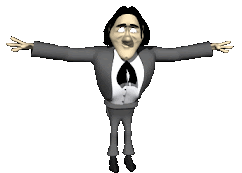🇦🇹 Die Fledermaus 🇫🇷

🎼 Johann Strauss II 🦇


La Chauve Souris
Opéra de Lille
Opéra de Lille returns Die Fledermaus to these origines with song and dialogue in French.
Die Fledermaus (German The Flittermouse or The Bat, sometimes called The Revenge of the Bat) is an operetta composed by Johann Strauss II to a German libretto by Karl Haffner and Richard Genée, which premiered in 1874. Johann Strauss II’s comic operetta in three acts which
premiered in 1874, has become a synonym of the operetta genre. The most brilliant of Austrian operettas takes us to the outskirts of romantic Old Vienna. It’s New Year Eve and we are in the company of Caroline, who is determined to teach her philandering husband Gaillardin a lesson, even while she is being pursued by her former beau, the operatic tenor Alfred. At the centre of the action is the extremely wealthy, eternally bored Prince Orlofsky, whose lavish masked ball brings everything to a most delicious boil. But what if the whole plot has been a cunning plan masterminded by someone just to get back at Eisenstein?
🇦🇹 Die Fledermaus
🇫🇷 La Chauve Souris
Johann Strauss II 🎼 Opéra de Lille
👇 🦇 👇
 "CC" To Translate
"CC" To Translate
🦇 Click
Die
Fledermaus, Johann Strauss II’s comic operetta in three acts which
premiered in 1874, has become a synonym of the operetta genre. In only
six years, the operetta was staged in more than 170 theatres in the
German-speaking regions and, by the 1890s, was performed all over the
world. The libretto was written by Richard Genée and Karl Haffner after
the burlesque The Prison by Julius Roderich Benedix and vaudeville piece
Le Réveillon by Henri Meilhac and Ludovic Halévy. The emblem of
Viennese refinement, here the new production from Opéra de Lille returns
Die Fledermaus to these origines with song and dialogue in French. The
staging is entrusted to the colourful imagination of Laurent
Pelly. A master of comedy – as seen in his recent Meistersinger from
Madrid – Pelly is able to indulge his taste for zany situations with
precision, elegance and charm. This is sparkling Chauve-Souris turned on its head... which, as it were, is the Bat’s most natural position.
The original literary source for Die Fledermaus was Das Gefängnis (The Prison), a farce by German playwright Julius Roderich Benedix that premiered in Berlin in 1851. On 10 September 1872, a three-act French vaudeville play by Henri Meilhac and Ludovic Halévy, Le Réveillon, loosely based on the Benedix farce, opened at the Théâtre du Palais-Royal. Meilhac and Halévy had provided several successful libretti for Offenbach and Le Réveillon later formed the basis for the 1926 silent film So This Is Paris, directed by Ernst Lubitsch.
Meilhac and Halévy's play was soon translated into German by Karl Haffner (1804–1876), at the instigation of Max Steiner, as a non-musical play for production in Vienna. The French custom of a New Year's Eve réveillon,
or supper party, was not considered to provide a suitable setting for
the Viennese theatre, so it was decided to substitute a ball for the réveillon. Haffner's translation was then passed to the playwright and composer Richard Genée, who had provided some of the lyrics for Strauss's Der Karneval in Rom the year before, and he completed the libretto.
Die Fledermaus (The Bat) is an operetta by Johann Strauss II that was performed at the Opéra de Lille in Lille, France from June 4–17, 2024:
Director: Laurent Pelly
Conductor: Johanna Malangré
Cast: Marie-Eve Munger as Adele, Julien Dran as Alfred, Héloïse Mas as Prinz Orlofsky, Claire Antoine as Ida, Raphaël Bremard as Bidard, Eddy Letexier as Leopold, Guillaume Andrieux as Gaillardin, Christophe Gay as Duparquet, Franck Leguérinel as Tourillon, and Camille Schnoor as Caroline Gaillardin (Rosalinde)
Language: French
The production was described as a "sparkling Chauve-Souris turned on its head", with a zany, lively tempo. Some say the production was satisfying and enjoyable, with a great cast and direction. Others noted that the production was spoiled by the expressionistic setting and that it lacked the ballet and ballroom dancing that are typical for a comic opera.
Die Fledermaus is based on the play Gefängnis by Julius Roderich Benedix. The operetta premiered in 1874.
Die Fledermaus - OperaVision
Sep 13, 2024 — The emblem of Viennese refinement, here the new production from Opéra de Lille returns Die Fledermaus to these origine...
Director: Laurent Pelly
Conductor: Johanna Malangré
Cast: Marie-Eve Munger as Adele, Julien Dran as Alfred, Héloïse Mas as Prinz Orlofsky, Claire Antoine as Ida, Raphaël Bremard as Bidard, Eddy Letexier as Leopold, Guillaume Andrieux as Gaillardin, Christophe Gay as Duparquet, Franck Leguérinel as Tourillon, and Camille Schnoor as Caroline Gaillardin (Rosalinde)
Language: French
The production was described as a "sparkling Chauve-Souris turned on its head", with a zany, lively tempo. Some say the production was satisfying and enjoyable, with a great cast and direction. Others noted that the production was spoiled by the expressionistic setting and that it lacked the ballet and ballroom dancing that are typical for a comic opera.
Die Fledermaus is based on the play Gefängnis by Julius Roderich Benedix. The operetta premiered in 1874.
Die Fledermaus - OperaVision
Sep 13, 2024 — The emblem of Viennese refinement, here the new production from Opéra de Lille returns Die Fledermaus to these origine...
OperaVision is a freeview opera streaming platform, supported by the European Union's Creative Europe programme. Watch live streams as the performances themselves unfold in the opera house. Enjoy a variety of shows - including opera, operetta, musical theatre, dance, ballet and
concerts. Opera connaisseur or curious newcomer, there is something for everyone on OperaVision.
https://operavision.eu/
 / operavisioneu
/ operavisioneu
 / operavision_eu
/ operavision_eu
 / operavision.eu
/ operavision.eu
 / operavision
/ operavision
 / operavisioneu
/ operavisioneu
 / operavision_eu
/ operavision_eu
 / operavision.eu
/ operavision.eu
 / operavision
/ operavision Die Fledermaus 🦇 Waltz
Welsh National Opera
Welsh National Opera
👇 📺 👇
Die Fledermaus
https://fr.wikipedia.org/wiki/Die_Fledermaus

Die Fledermaus
Full Operetta with English Subtitles
Conductor: Karl Böhm
Director: Otto Schenk
👇 📺 👇
Conductor: Karl Böhm
Director: Otto Schenk
👇 📺 👇
Rosalinde: Gundula Janowitz
Gabriel von Eisenstein: Eberhardt Wächter
Frank: Erich Kunz
Prince Orlofsky: Wolfgang Windgassen
Alfred: Waldemar Kmentt
Dr. Falke: Heinz Holk
Dr. Blind: Erich Kuchar
Adele: Renate Holm
Frosch: Otto Schenk
Ida: Sylvia Lukan
Gabriel von Eisenstein: Eberhardt Wächter
Frank: Erich Kunz
Prince Orlofsky: Wolfgang Windgassen
Alfred: Waldemar Kmentt
Dr. Falke: Heinz Holk
Dr. Blind: Erich Kuchar
Adele: Renate Holm
Frosch: Otto Schenk
Ida: Sylvia Lukan
🎼 ♪ ♫ 🤗 🦇 ♪ 🇦🇹 ♫ 🇫🇷




.gif)
No comments:
Post a Comment